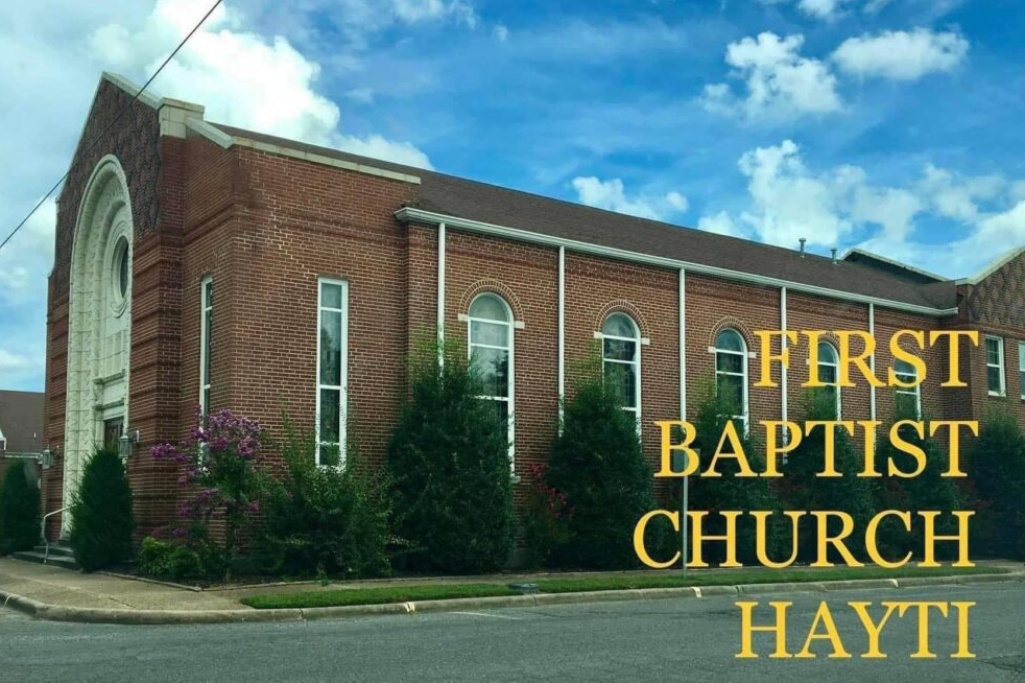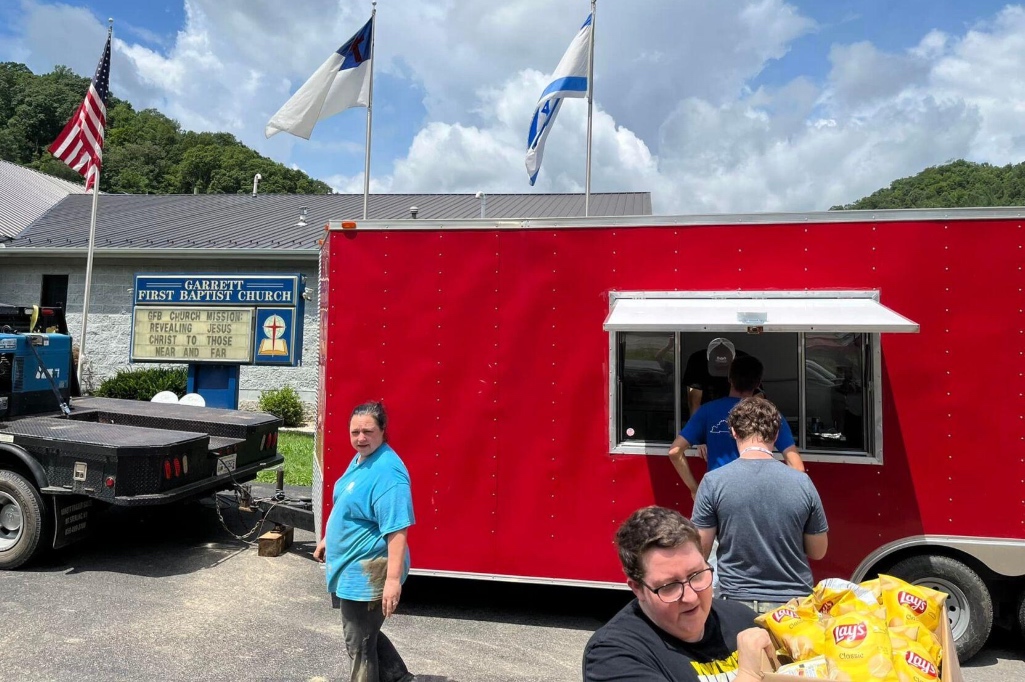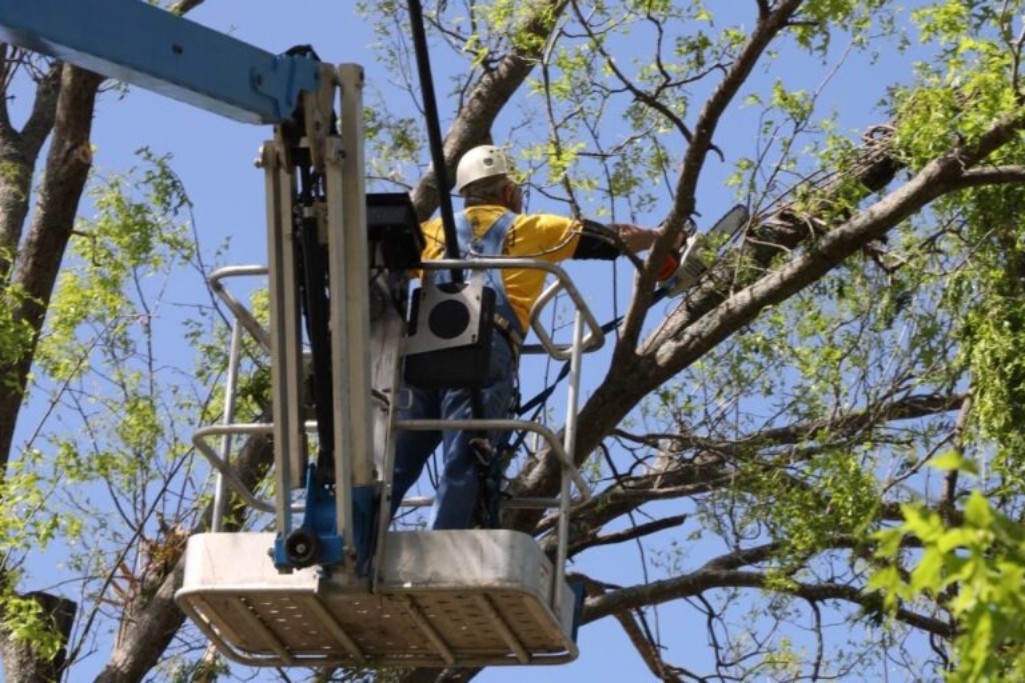
HAYTI, Mo. (BP) – “What would you do if Disaster Relief came to your area? Would you be ready?”
Those are questions Mark Hoover, pastor of First Baptist Church Hayti, says every church should ask, because Disaster Relief (DR) workers need local church support quickly when teams move in to help communities clean up following natural disasters.
But for this church in Missouri’s Bootheel, the story is a little different: It’s shared its building with DR teams since mid-February on an extended project.
“We have been blessed to have our church facilities used for the Missouri Baptist Disaster Relief team for most of the year now,” Hoover said.
That’s because DR workers have been doing more than the typical clean-up that can last a few days to several months. DR workers from across the state have headed weekly to Hayti. They’ve repaired two damaged houses and are rebuilding two others that were destroyed in a December 2021 tornado that ripped a path from northeastern Arkansas through southeastern Missouri, and into western Kentucky.
During the clean-up phase following the tornado, uninsured homeowners asked DR for help in repairing and rebuilding their houses.
“This is a new facet of Disaster Relief work in the state of Missouri,” said Tom Malott, the rebuild coordinator for the 2021 Hayti Tornado Disaster Relief project. “This is the first time we’re aware of that Missouri Disaster Relief teams have ever built from the ground up.”
“We’re in this as a team in Christ,” Hoover said. He encourages churches to have a strategy in place before DR teams come to town because disasters can strike anywhere. When DR teams move in, they need local resources such as lodging, sanitation, food and storage facilities.
Hoover said when DR leaders asked for space to house workers the decision was easy for First Hayti, because the church already had the physical resources and the mindset.
“If we’re able to help, we’d better,” the pastor said. “If we’re able to help and we don’t, we answer to God.”
The church provided utility services, water hook-up for a mobile shower unit, use of the church kitchen and bathrooms, parking lot space for tractors and other equipment, storage facilities for tools and materials, and classrooms for lodging.
Any church can create a strategy to use the resources it has, he said. Water hook-ups, for example, can supply DR mobile kitchens, bathrooms and showers. A large parking lot can hold equipment and materials.
Malott said using the resources at First Hayti was “a lifesaver.”
He’s had more than 100 workers on site at different times. Teams have ranged from two to 24 workers during the work week. They typically head home for the weekends.
Hoover said some churches “can get protective of our property. Sometimes we treat our church buildings as a sacred property. Let them be used for God’s glory.”
“Our hope,” he added, “is that churches would be welcoming to host Missouri Baptist Disaster Relief teams and other teams when the needs happen. It’s a two-way blessing for the teams and our church.”
The DR teams have been good partners, Hoover said. When his congregation of 100-150 has gathered for Sunday Bible study and worship, “you’d never know they (DR workers) were here. They never left a fingerprint while they were here. They left things just like they found them.”
During the church’s summer vacation Bible school, which attracted 150 kids, VBS and DR volunteers cooperated and coordinated use of the church kitchen and other facilities.
“We made it work. There’s nothing that has put our church out in taking care of (the DR teams),” Hoover said.


